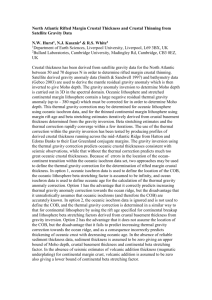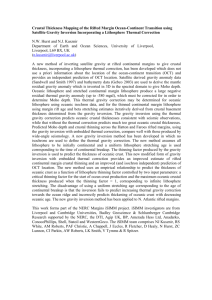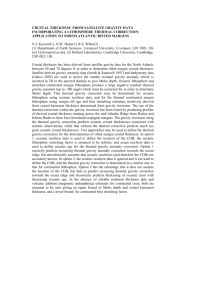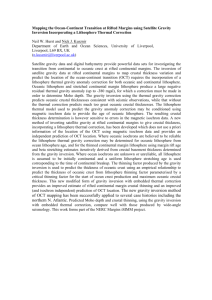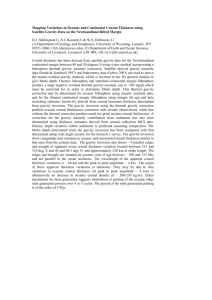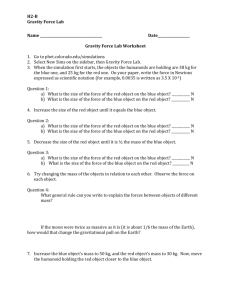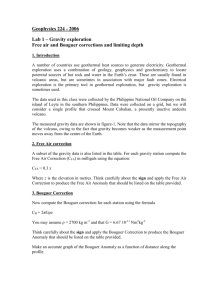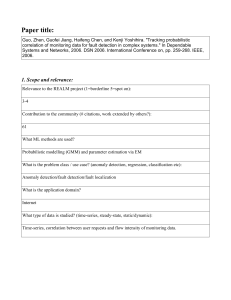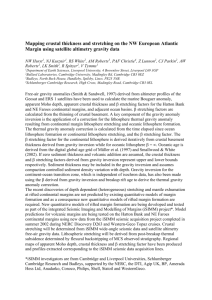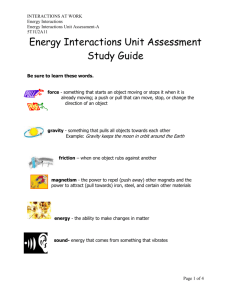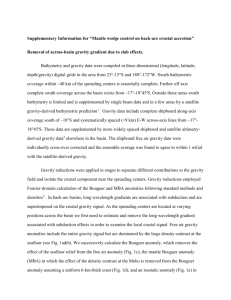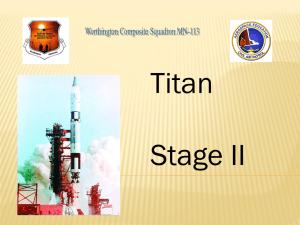Satellite gravity inversion for Moho depth: applications in frontier
advertisement
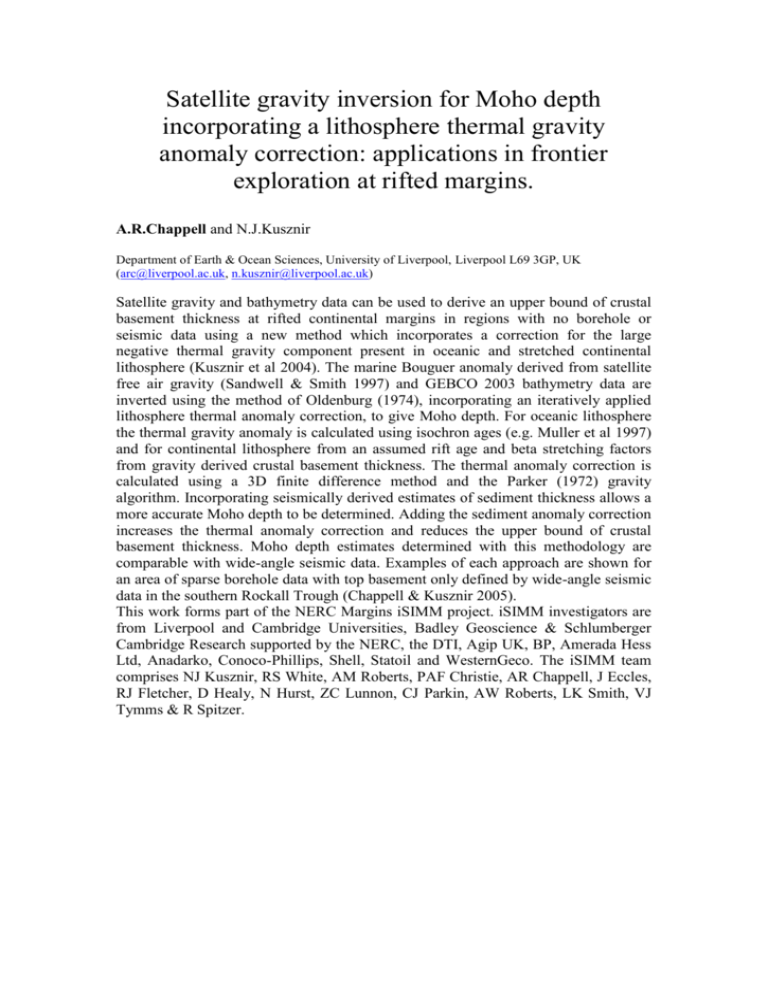
Satellite gravity inversion for Moho depth incorporating a lithosphere thermal gravity anomaly correction: applications in frontier exploration at rifted margins. A.R.Chappell and N.J.Kusznir Department of Earth & Ocean Sciences, University of Liverpool, Liverpool L69 3GP, UK (arc@liverpool.ac.uk, n.kusznir@liverpool.ac.uk) Satellite gravity and bathymetry data can be used to derive an upper bound of crustal basement thickness at rifted continental margins in regions with no borehole or seismic data using a new method which incorporates a correction for the large negative thermal gravity component present in oceanic and stretched continental lithosphere (Kusznir et al 2004). The marine Bouguer anomaly derived from satellite free air gravity (Sandwell & Smith 1997) and GEBCO 2003 bathymetry data are inverted using the method of Oldenburg (1974), incorporating an iteratively applied lithosphere thermal anomaly correction, to give Moho depth. For oceanic lithosphere the thermal gravity anomaly is calculated using isochron ages (e.g. Muller et al 1997) and for continental lithosphere from an assumed rift age and beta stretching factors from gravity derived crustal basement thickness. The thermal anomaly correction is calculated using a 3D finite difference method and the Parker (1972) gravity algorithm. Incorporating seismically derived estimates of sediment thickness allows a more accurate Moho depth to be determined. Adding the sediment anomaly correction increases the thermal anomaly correction and reduces the upper bound of crustal basement thickness. Moho depth estimates determined with this methodology are comparable with wide-angle seismic data. Examples of each approach are shown for an area of sparse borehole data with top basement only defined by wide-angle seismic data in the southern Rockall Trough (Chappell & Kusznir 2005). This work forms part of the NERC Margins iSIMM project. iSIMM investigators are from Liverpool and Cambridge Universities, Badley Geoscience & Schlumberger Cambridge Research supported by the NERC, the DTI, Agip UK, BP, Amerada Hess Ltd, Anadarko, Conoco-Phillips, Shell, Statoil and WesternGeco. The iSIMM team comprises NJ Kusznir, RS White, AM Roberts, PAF Christie, AR Chappell, J Eccles, RJ Fletcher, D Healy, N Hurst, ZC Lunnon, CJ Parkin, AW Roberts, LK Smith, VJ Tymms & R Spitzer.
